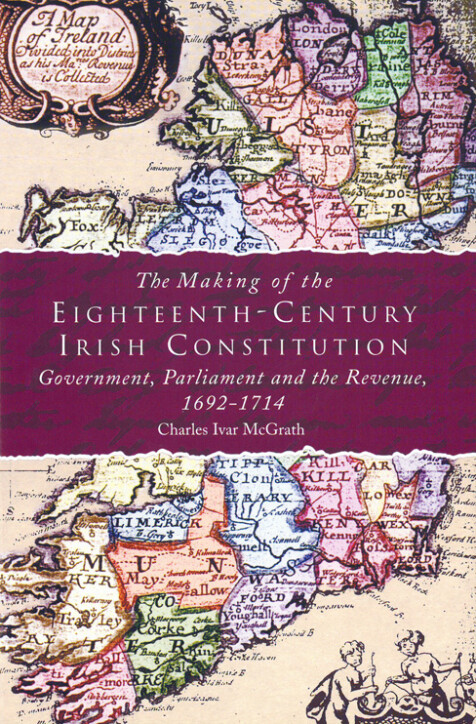The making of the eighteenth-century Irish constitution
Government, parliament and the revenue, 1692–1714
Charles Ivar McGrath
The Glorious Revolution and the Irish War of 1689–91 fundamentally altered the course of Irish constitutional and political history. However, primarily because of the destruction of the State Papers in the Four Courts in 1922, the great changes that occurred in government and parliament in Ireland in the early eighteenth century have only been fleetingly touched upon by historians. Through the extensive use of previously untapped primary source material, this book addresses the question of government, parliament and the revenue in the period 1692–1714, and, in so doing provides a new and detailed insight into the making eighteenth-century Irish constitution. The central theme of the work is the role that the raising of public revenue played in the development of a new constitutional framework for the government and Protestant political nation in Ireland. Prior to the late seventeenth century, parliament had been an irregular 'event' in Ireland; yet by 1715 it had become established as a regular and essential institution within the system of government. This highly significant alteration in the system of government occurred primarily because of escalating public expenditure and parliament's refusal to vote any permanent additions to the government's hereditary income.
The eventual formulation of a working relationship between the executive and legislature in relation to short-term revenue supply ensured the survival of parliament as a regular institution in the eighteenth century, and, thereby, helped to create a new and distinct constitutional framework for Ireland.
Charles Ivar McGrath holds an MA from the National University of Ireland and a PhD from the University of London.

